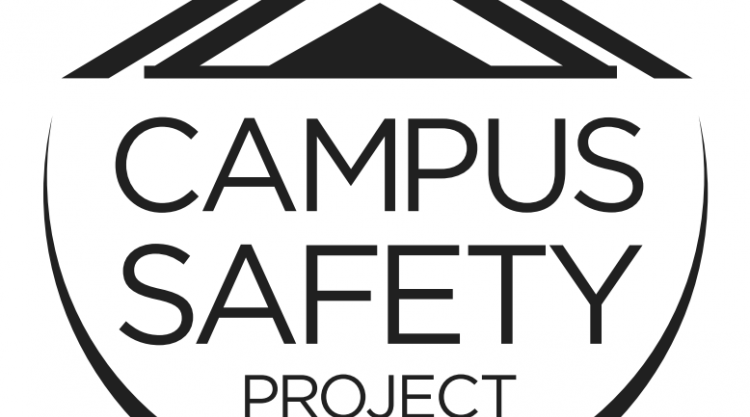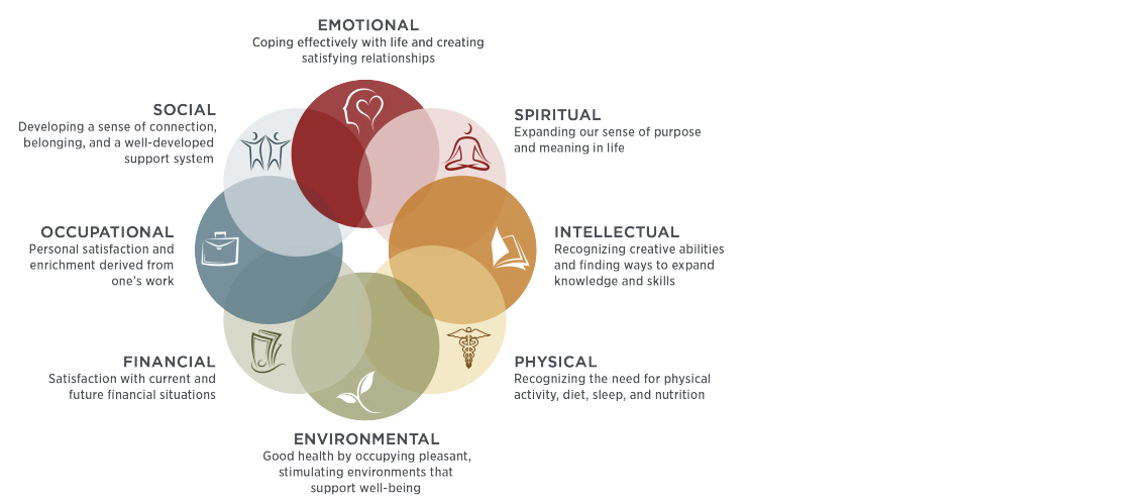- Normalizing the Conversation – It’s Okay To Talk About Suicide
- Have you ever wondered how to talk with a friend who may be experiencing suicidal thoughts? You may find this video from the Ad Council: Seize the Awkward campaign with Remi Cruz helpful (2:43): Remi Cruz on Trusting Your Gut | Friendship & Mental Health | Ad Council
- At USM Health and Counseling, we are always available to help you if you have questions about a friend or a family member. Our team also offers a variety of suicide prevention and active bystander trainings, which can be tailored to a particular audience or group. For more information about USM’s Counseling Services training and outreach programs, please visit here.
- Suicide Prevention Online Resources
#BeThe1To Five steps you can take to help someone in suicidal crisis.
Suicide Prevention Guide online guide available through the Center for Collegiate Mental Heath
Maine Suicide Prevention Program
- Community Resources 24/7
There are many community resources available to consult for you or someone you care about (some listed above) by calling or utilizing online chat functions 24/7:
- Opportunity Alliance Crisis Services: (207)774-HELP / (207)774-4357 (Cumberland County)
- Tri-County Mental Health Services: (888)304-HOPE / (888)304-4673 (Androscoggin County)
- Maine Statewide Crisis Line: (888)568-1112
- Sexual Assault Response Services of Southern Maine: (800)871-7741 (Portland)
- Through These Doors (Family Crisis Services/Intimate Partner and/or Domestic Violence): (800)537-6066
- StrongHearts Native Helpline (support for indigenous peoples experiencing intimate partner violence): 844-7NATIVE / (844)762-8483 / online chat available
- National Suicide Prevention Hotline [includes services for deaf/HOH and in 150 languages]: (800)273-TALK / (800)273-8255 / en Español at (888)628-9454
- Crisis Text Line: Text HOME to 741741
- Veterans’ Crisis Line: (800)273-8255, Press 1 / Text 838255
- Trevor Project (LGBTQIA+ Crisis Hotline, ages 13-24): (866)488-7386 / Text: 678678
- Blackline (BIPOC Crisis Line/Peer Support): (800)604-5841
- Asian LifeNet Hotline (Offers support in Cantonese, Mandarin, Fujianese, Japanese, or Korean): (877)990-8585
If you or someone you know is in immediate danger of harming themselves and/or others, you may also contact emergency services by dialing 911, calling on campus Public Safety at (207)780-5211 or going to your nearest hospital emergency room.Other Community Organizations
Some community resources are only available until 9pm or midnight, but are supportive for persons who may identify with group(s) that have experienced oppression or marginalization. (You are encouraged to visit the linked websites for hours of availability.) Several of these organizations are listed below:
- LGBT National Hotline (serving all ages): (888)843-4564
- LGBT Youth National Hotline (serving through age 25): (800)246-7743
- Trans Lifeline (trans peer support): (877)565-8860
Black Mental Health Alliance (for non-urgent connections, they will respond within 24 hours): submit a request to connect here
Substance Use InformationThe University of Southern Maine has several resources available to help you reduce your risk, keep yourself safe and protect the things in your life that matter the most to you!
- Counseling and/or Health Visits on the Portland, Gorham or LAC campuses
- Brief Alcohol Screening Intervention for College Students (BASICS) BASICS is a non-judgmental opportunity to look at the pros and cons of alcohol and/or marijuana. Learn tips to reduce your risk, and to protect the things you value!
More about BASICS– A student may be assigned BASICS through the Office of Community Standards and Mediation following the violation of USMs Alcohol and Drug policy. This sanction will provide the student with the necessary information needed to identify and reduce their level of risk.
Students can seek a BASICS visit on their own to determine their own personal level of risk and learn how to begin making low risk choices, prevent problems, and protect all they value and aspire for.
To request a BASICS visit, please contact Health and Counseling and ask to be connected with the Coordinator of Clinical Substance Use services or the BASICS facilitator.
BASICS was acknowledged as an evidence based program in the 2016 publication of the Surgeon General’s Report on Alcohol, Drugs and Health: Facing Addiction in America:
Brief Alcohol Screening and Intervention for College Students (BASICS) is an example of a brief motivational intervention for which results have been positive. BASICS is designed to help students reduce alcohol misuse and the negative consequences of their drinking. Follow-up studies of students who used BASICS have shown reductions in drinking quantity in the general college population, among fraternity members, with heavy drinkers who volunteered to use BASICS, and among those who were mandated to engage in the program from college disciplinary bodies.106,162,
To learn more: Surgeon General’s Report Alcohol, Drugs and Health
To explore information related to commonly used substances, including effects and risks of use, as well as safety tips, please visit topics linked below:
Tobacco, Nicotine, E-Cigarettes & Vaping
ADD/ADHD prescription medication, “Smart Drugs” & “Study Drugs”
For Parents
Fall Semester—A Time for Parents To Discuss the Risks of College Drinking
Talking with your College Bound Student about Alcohol
Partnership for Drug Free Kids
Growing Up Drug Free: A Parents’ Guide to Prevention
Other Addiction Resources

CAMPUS SAFETY PROJECT
In compliance with Title IX and other policies, the Campus Safety Project works to prevent and respond to sexual assault, dating/domestic violence, & stalking.
File A Report
Have you, or someone you know, experienced sex discrimination, sexual assault or harassment, dating or domestic violence, or stalking while at USM?
Whether you have experienced discrimination or interpersonal violence, or you need to report an incident that happened to someone else, there are easy ways to file a Title IX report and get help. If you are a pregnant (or newly parenting) student, the Deputy Title IX Coordinator can also be supportive to ensure your rights are upheld and you get the help you need.
Contact the Deputy Title IX Coordinator Directly
Dr. Sarah Holmes
(207) 780-5767
USM.TitleIX@maine.edu
University Counseling Services wants to support your pursuit of wellness.
Wellness is about becoming aware and taking an active process to promote emotional, physical, social, sexual, intellectual, financial, occupational, environmental, multicultural and spiritual wellness.
The World Health Organization defines Wellness as “…a state of complete physical, mental, and social well-being, and not merely the absence of disease or infirmity.”
The National Wellness Institute defines Wellness as “a conscious, self-directed and evolving process of achieving full potential.”
Wellness is Holistic, as all dimensions of wellness impact each other.

Below are some frequently recommended resources for supporting your mental health and pursuit of wellness. You can effectively access and use any of these tools or resources on your own. These resources are for informational purposes only and are not meant to substitute for mental health counseling.
If you are working with one of our counselors, they may suggest you access one or more of these tools or resources as a part of your therapeutic work together, as well.
Recommended apps and/or web-based interactive tools:
ScreenU: Free online, confidential self-screening tools to examine your habits related to alcohol, marijuana or other prescription drug use.
SliverCloud: Free online mental health tool available to all University of Maine system students. It covers many topics a college or graduate student might want to explore, including anxiety, depression, stress, resilience, sleep and even the effects of the pandemic.
CBT Downloadable Worksheets: Free online downloadable Cognitive Behavior Therapy worksheets, with resources about common thought distortions. Learning to examine and change the way you think about feelings and events in your life can be helpful in relieving stress, anxiety, depression, etc.
DBT Self-Help: Free online dialectical behavior therapy (DBT) skills and tools available for self-guided use (or at the advice of a counselor). These are especially helpful for developing healthy relationships, managing strong emotions and lowering reactivity when stressed.
Find specific resources (ie. articles, online tools, podcasts, videos, self-screening tools, etc.) based on topic of interest below:
Diversity, Equity, and Inclusion
Healthy Relationships & Healthy Boundaries

